With the launch of the 13th Generation Intel Core series processors, we are taking a quick look at the motherboard platform we are using in our review. We are in a bit of a logjam with this review and OCP Summit 2022 coverage, so expect benchmarks using this platform in our formal review sometime in the next 12-36 hours. We still wanted to show off the new ASUS PRIME Z790-A WiFi to show our readers the platform we are using and what the new platform offers.
ASUS PRIME Z790-A WiFi Overview
The motherboard itself is an ATX form factor. This is not ASUS’s most expensive nor most ornate solution, but it is far from a bargain board in the $300-ish price band. Something many of the photos online, and many of our photos may deceive the eye on is that this is not white heatsinks. Instead, the ornamentation around the black PCB motherboard is made of metal so these are actually a bit more silver than they may appear in photos.
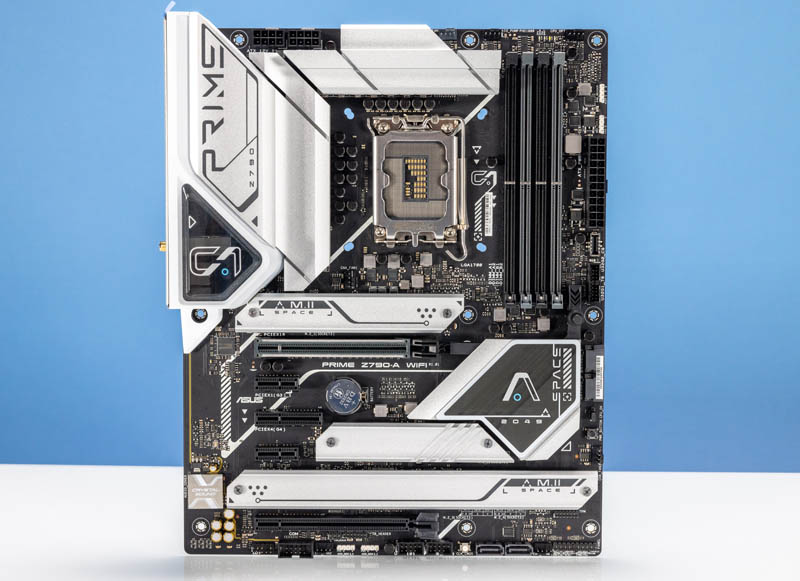
The new motherboard is designed for the LGA1700 socket CPUs including Alder Lake (12th Gen Core) and Raptor Lake (13th Gen Core) processors.
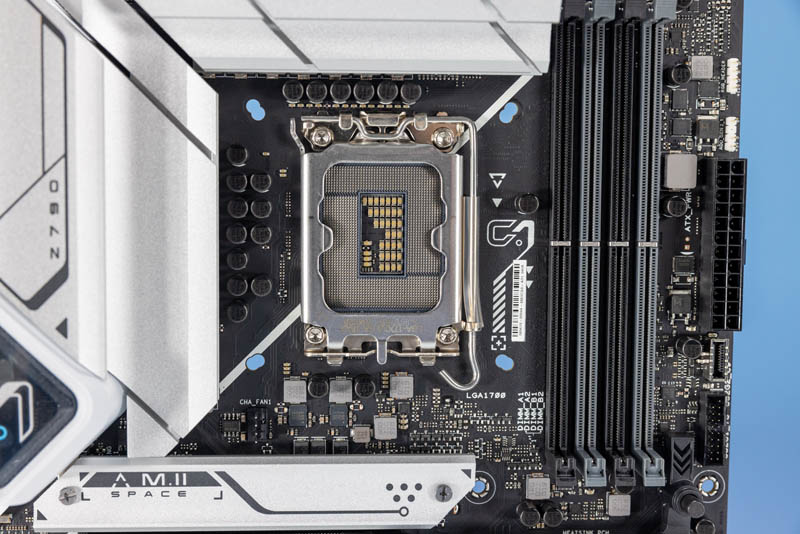
Here is another look to help you judge clearances for coolers.
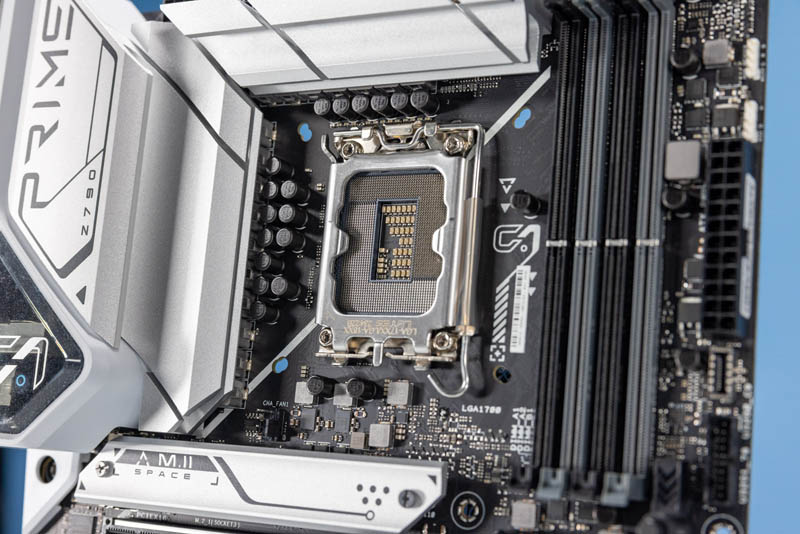
We are using these for our 13th Gen Intel Core test platform. Instead of making a table, with the initial launch SKUs, here is the table in paperweight form alongside the Intel Core i9-13900K and Core i5-13600K.
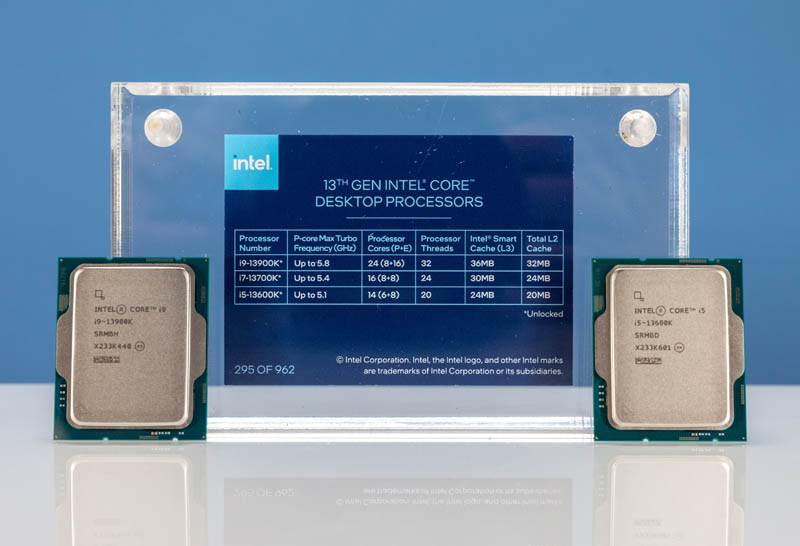
Here is the Intel Core i9-13900K installed in the socket. This motherboard can support Alder Lake as well, but we just wanted to show this platform off with the new CPU.
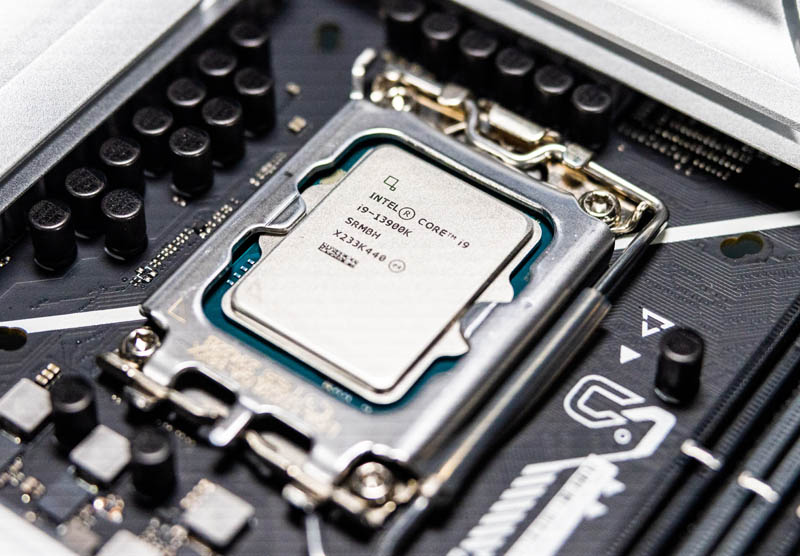
Like the AMD Ryzen 7000 series platforms we have seen, the PRIME Z790-A WiFi is a DDR5 platform.
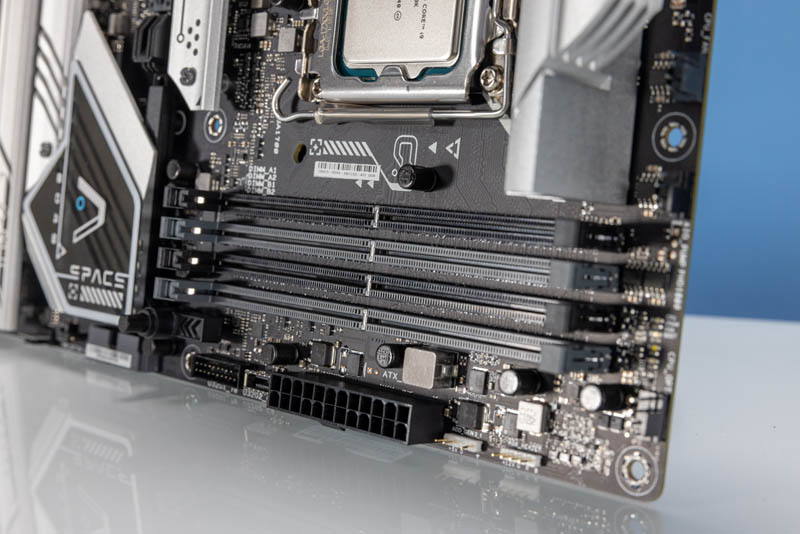
We are using Corsair Vengeance DDR5 modules in the test system.
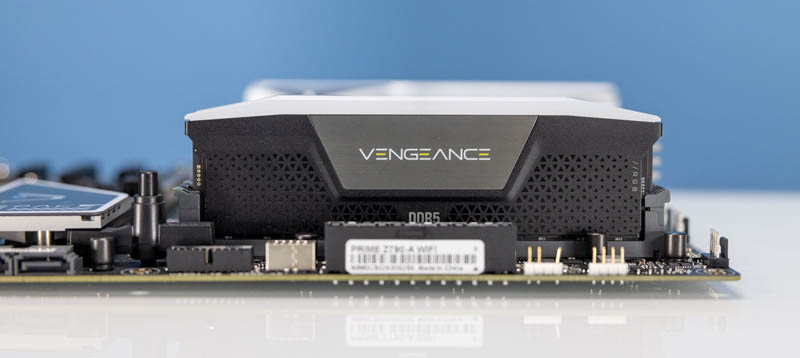
Here is another view that shows the height next to the motherboard heatsinks.
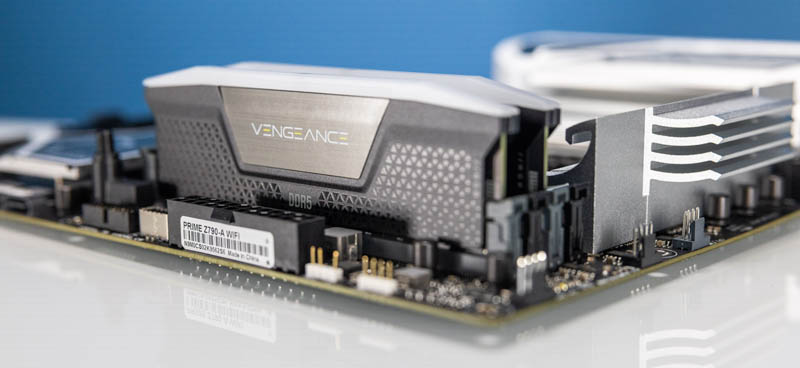
For those upgrading from older CPU generations, this new platform requires two 8-pin CPU power inputs. The new generations of desktop parts can use more power than dual Intel Xeon E5 V1 CPUs so what was common 10 years ago on dual server-class processor systems is now standard on desktop-class systems. Like the PCIe Gen5 connector, the motherboard power connectors need a re-design to simplify the web of lower-density cables modern systems need. Alas, ATX power supplies are hard to change.
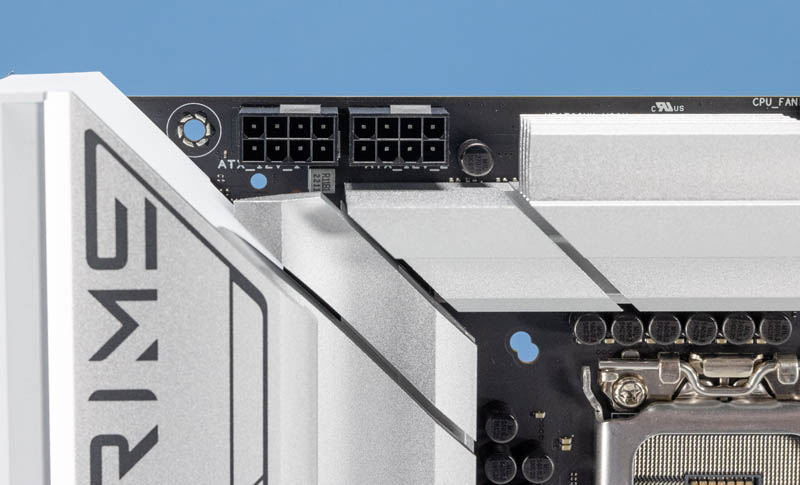
Also along the top of the motherboard are headers for a CPU fan, AIO pump, and a second CPU fan if needed.
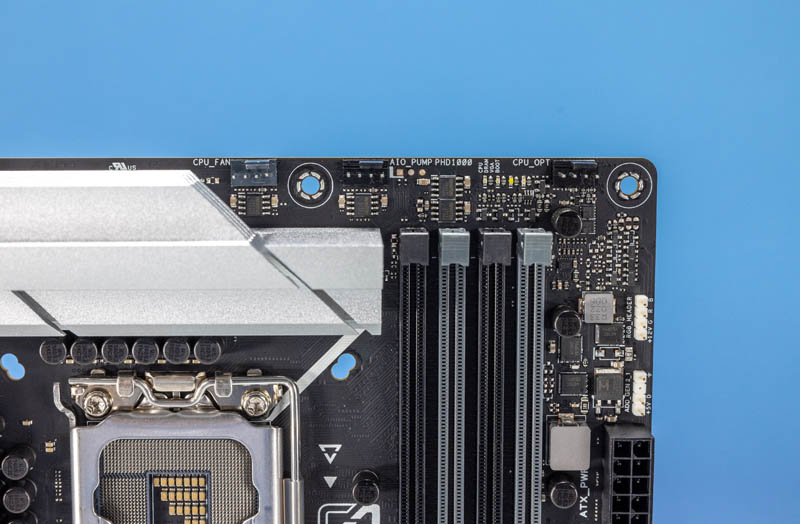
ASUS has its Aura Sync header and then the ATX power connector on the side. Below those are the front panel USB connectors for USB 3.2 Gen1 and Gen2 connections.
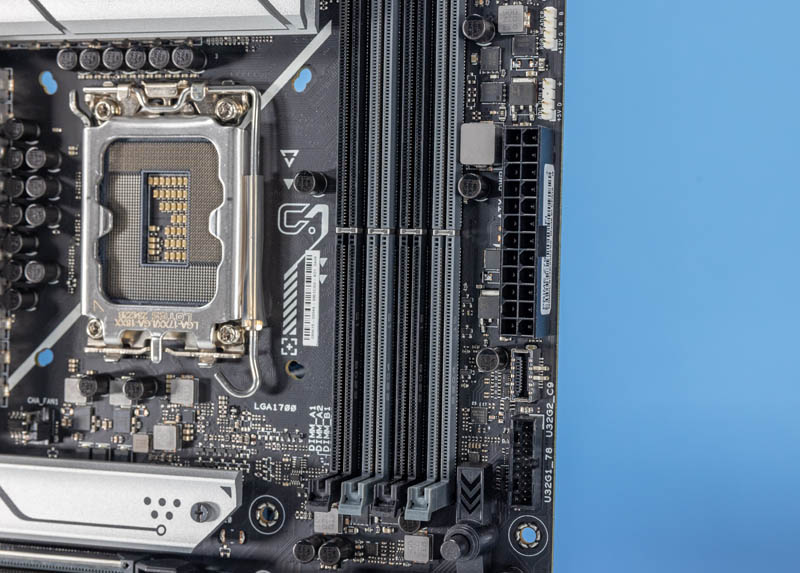
The bottom portion of the motherboard is where the real action is. For a desktop-class motherboard, there is a lot here. There is a PCIe 5.0 x16 slot for a GPU. The other slots come from the Intel Z790 chipset with a PCIe 4.0 x16 slot (x4 electrical), a PCIe 4.0 x4 slot, and two PCIe 3.0 x1 slots. One of the big changes with the Z790 from the Z690 is that eight of the chipset PCIe Gen3 lanes have become Gen4 lanes.
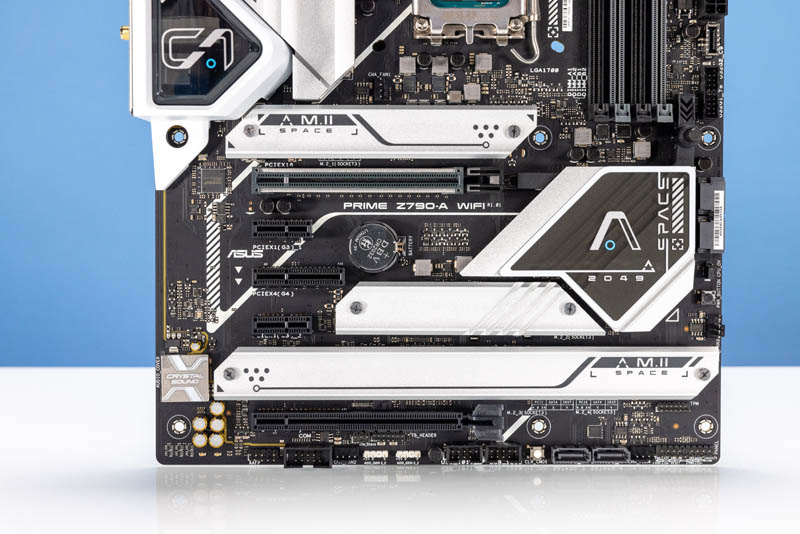
Removing the heatsinks, we find four M.2 slots.
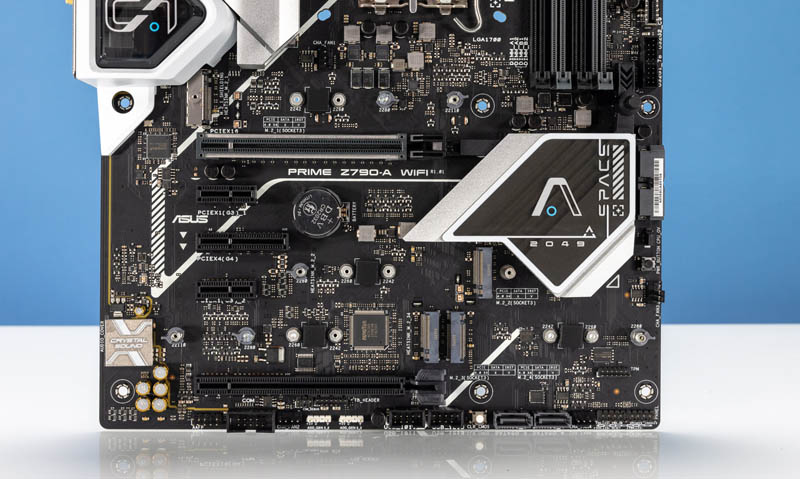
The M.2 array is clearly massive, but we noticed something interesting when installing the Crucial P5 Plus 2TB drive. First, we have the toolless M.2 installation that is very simple and works great. We wish this was on more systems.
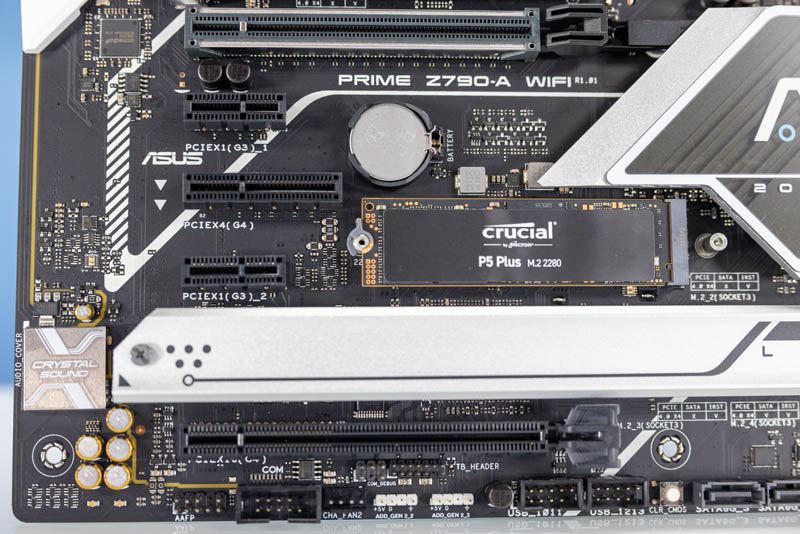
If you tighten the ASUS heatsink with the thermal pad, you can fairly easily get the M.2 SSD to bend. This is not ideal.

Instead, leaving the M.2 heatsink gently tightened will keep the SSD straight. The torque spec seems to be very different compared to the other devices in a system.
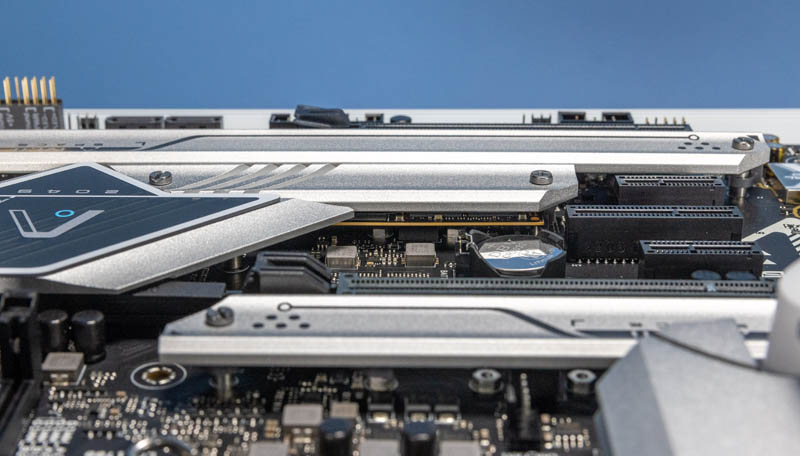
For PCIe, something that ASUS has been doing, that we really like, is adding a GPU release button for the PCIe Gen5 x16 slot. If you have ever tried to get around a large GPU to unlatch an x16 slot’s lock, you will understand why this is welcome.
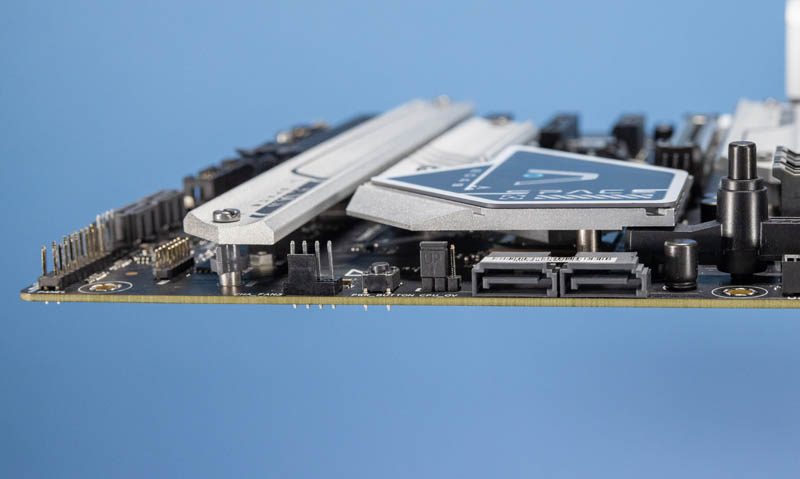
On the topic of storage, there are two SATA connectors on the side of the motherboard and two on bottom. SATA is slowly being phased out. This is an ATX consumer motherboard that has as many M.2 slots as it has SATA ports.
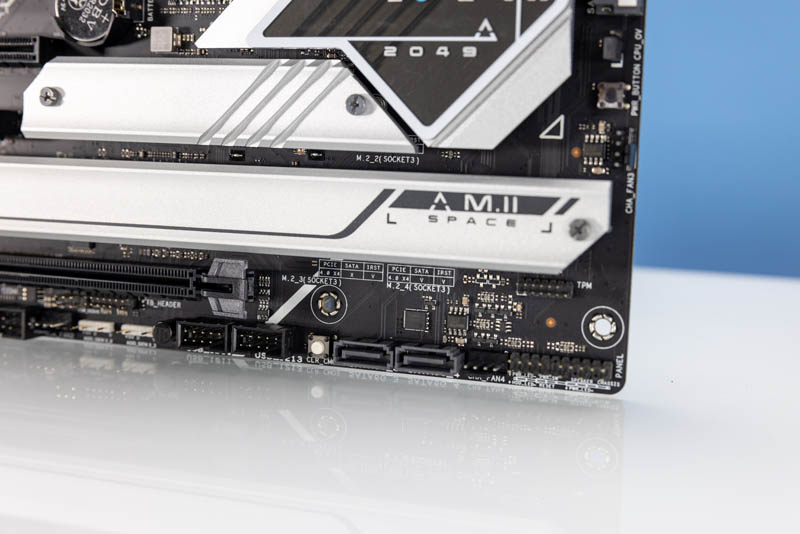
A small quality-of-life feature is that we get the front panel header connector. These little devices are simple and super useful. Unfortunately, this is another area where we wish the industry just standardized on since this little device is just making it easier to work on a 1990s feature on modern motherboards.
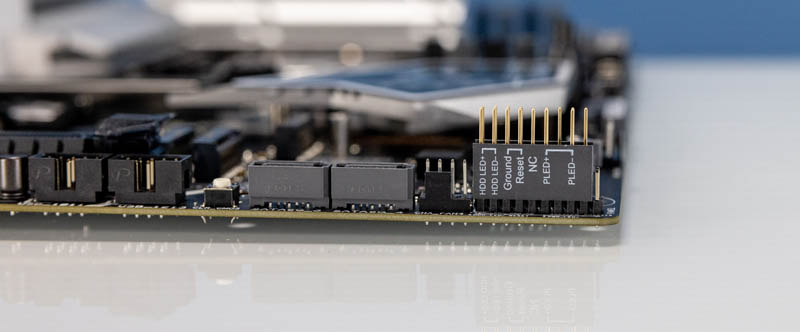
Sounds is being driven by “Crystal Sound” and is on an isolated portion of the motherboard. This is fairly standard for this class of system.
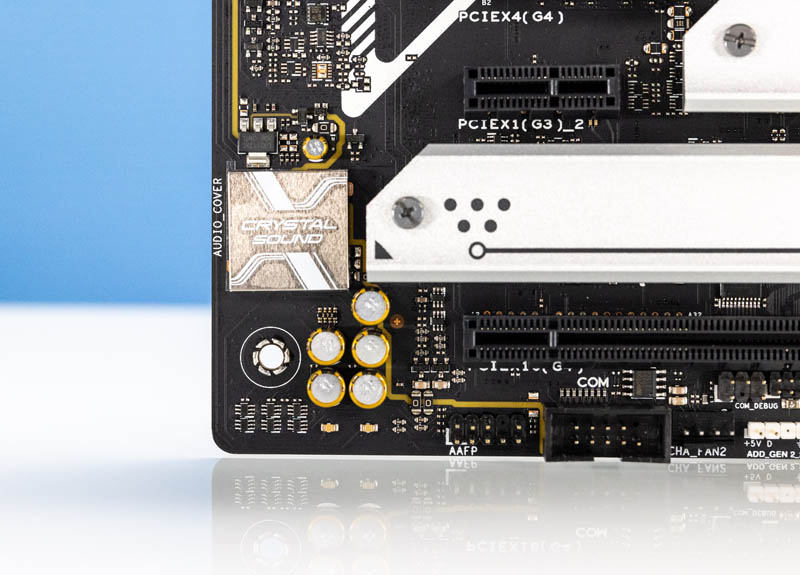
A few miscellaneous features we wanted to show. One is that this motherboard has a physical power button next to the Space 2049 PCH heatsink/ cover.
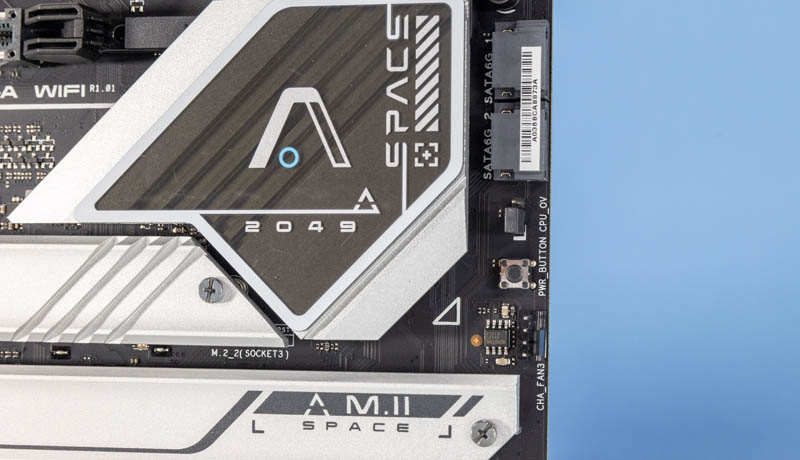
Here is a shot looking under the heatsink/ cover to the Intel Z790 PCH.

There is also a clear window around the rear I/O area. We are not sure why this is here, but perhaps it is to let one see that this has a WiFi 6E module. This seems to be an aesthetically driven feature.
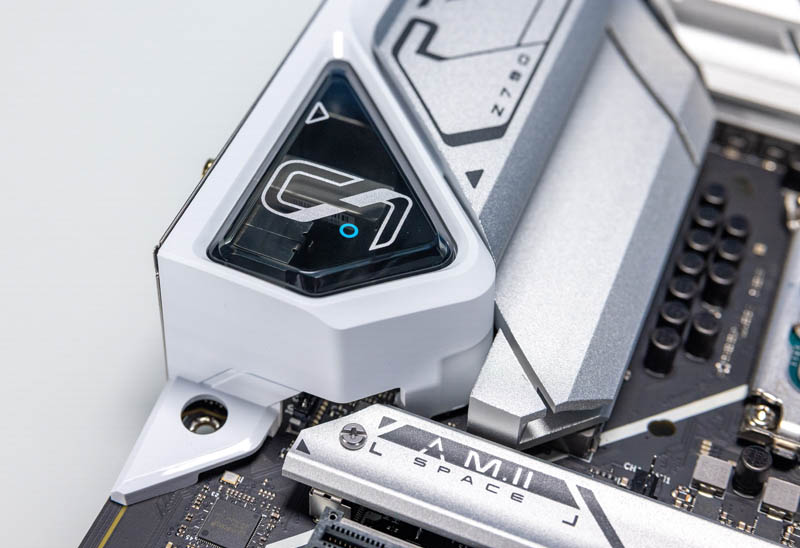
On the rear I/O, this motherboard has a fixed I/O shield. Here we can see the audio connections, but interestingly only three audio jacks and no optical out. We then have the WiFi antenna headers and a 2.5GbE network port. USB is provided via four USB 3 5Gbps Type-A ports, and two USB 3 10Gbps Type-A ports. There are two USB Type-C ports. One is 10Gbps and one is 20Gbps.
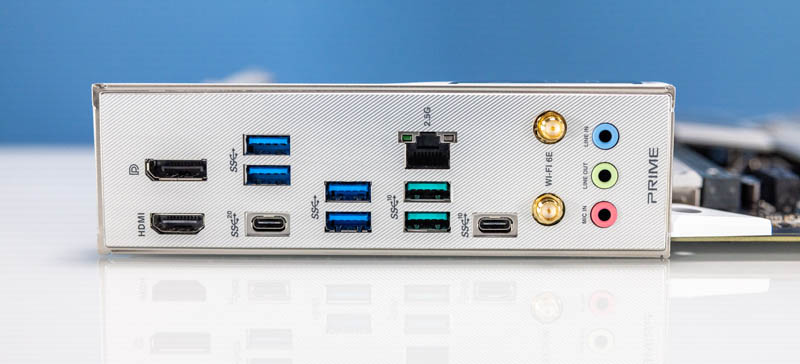
There are also HDMI and DisplayPorts onboard for video out.
The system also comes with a WiFi antenna.
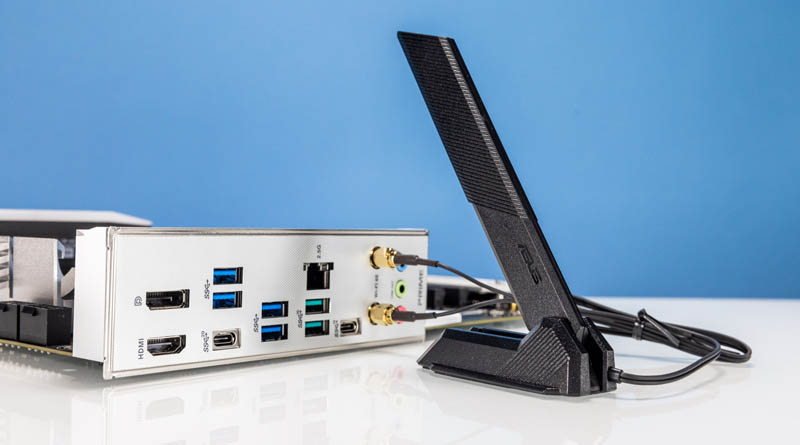
This is certainly a bit different than many of the motherboards we have seen previously in this price range.
Final Words
A few notes here. First, the 13th Generation Core CPUs will work in Z690 (with BIOS updates) or Z790 motherboards, and the Z790 can take 13th and 12th gen parts. The Z790 with extra PCIe Gen4 lanes over the Z690 is an upgrade, but probably not one that we would upgrade a motherboard for.
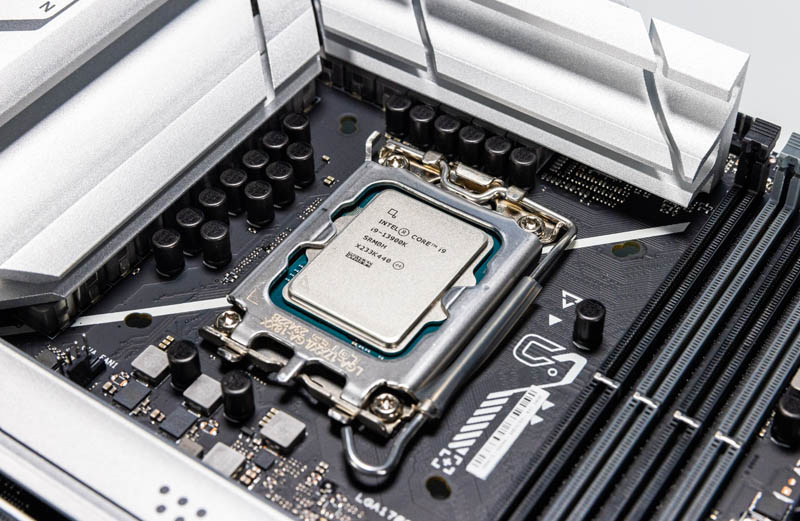
The ASUS Prime Z790-A WiFi has a number of nice features, but it is also clear that this is a more midrange offering. The port loadouts on higher-end motherboard series, as we saw with the ASUS STRIX Z690-E Gaming WiFi are more robust. We would have preferred a second onboard NIC instead of a PCIe x1 slot that will likely be covered by a GPU anyway.
Overall though, the ASUS Prime Z790-A WiFi was easy to build a system upon for our testing and worked out-of-the-box for us thus far. That is what we really look for since there are so many motherboards these days with slightly different price points and features.

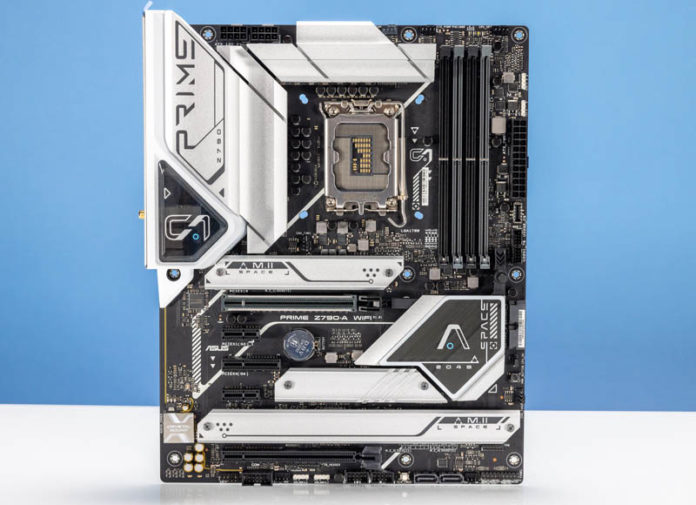
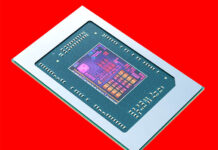
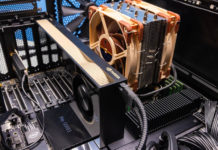
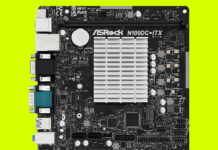
I have an ASUS PRIME Z390-A and was looking at this board along with a 13th Gen processor as an upgrade, but the lack of optical out is a deal killer for me and I have no use for the WiFi. I’ll probably just use the PRIME Z690-A (with updated BIOS).
Asus often does a non-WiFi version of the Prime boards, usually around $20 less. I also bemoan the disappearance of optical, but I suppose between USB, HDMI, and BlueTooth there isn’t much reason to include it on new equipment. I don’t agree, but there it is.
Can you test max achievable memory speed from this board? especially with Hynix Mdie/Adie
Hi,
what is the consumption in Watt?
Thank you
@Riccardo PC Part Picker reflects a power consumption between 17-70W.